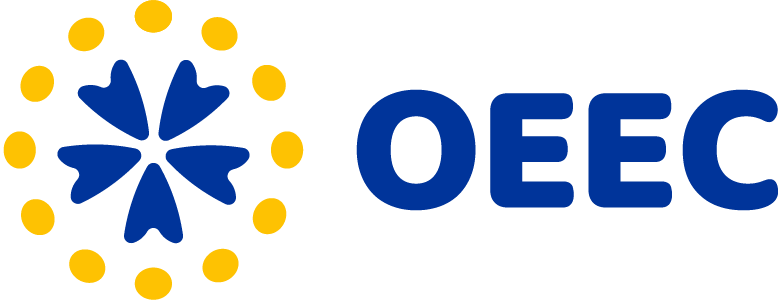Youth Power is a programme about energy and a creative future, which is now, as never before, near us. Young girls and boys had been undergoing training for half a year, and now shared their personal stories, rueful feelings and success with us.
Office for European Expertise and Communications held the Youth Power program in December 2019 – June 2020 and trained multipliers who will work with young people and empower their position and participation in society. A half-year-long training and hard work period, in spite of the pandemic, has yielded its lush fruit!
- 29 young people took part in the program; 20 of them continued to work as multipliers: they assess the needs of young people, hold educational workshops, help young people develop their ideas, and can work with youth initiatives as mentors.
- During the program, 356 young people from Vitebsk, Mogilev, Grodno, Borisov, Gomel, Molodechno, and Minsk took part in workshops that multipliers conducted online and offline. They raised their awareness of youth participation in decision-making processes, developed competencies in critical thinking, leadership and collaboration, understanding their own identity and acceptance of other people, knowledge of healthy personal boundaries, communication.
- 75 young people (20 teams and 13 mentors) took part in the Youth Makethon. 17 teams presented their ideas at the final pitch, at least 7 initiatives continued to implement their idea after the Makethon.
Questionnaires were so widespread, when we were kids: your favourite colour, film or musical band. On the one hand, these are amusing frolics, but, on the other hand, an opportunity to know other people better. Today, we are deprived of a chance to meet other live and have a live chat with them, which is why we have drawn up a questionnaire aimed at our Youth Power course participants, where they have contributed with their honest answers.
For some of them feminitives did constitute a challenge, while for others these were public speeches. Yet, the valuable thing is that everyone has gained a one-off experience, which they are ready to share here and now.
We have asked them identical questions inspired by Marcel Proust’s questionnaire and here are their frank answers.
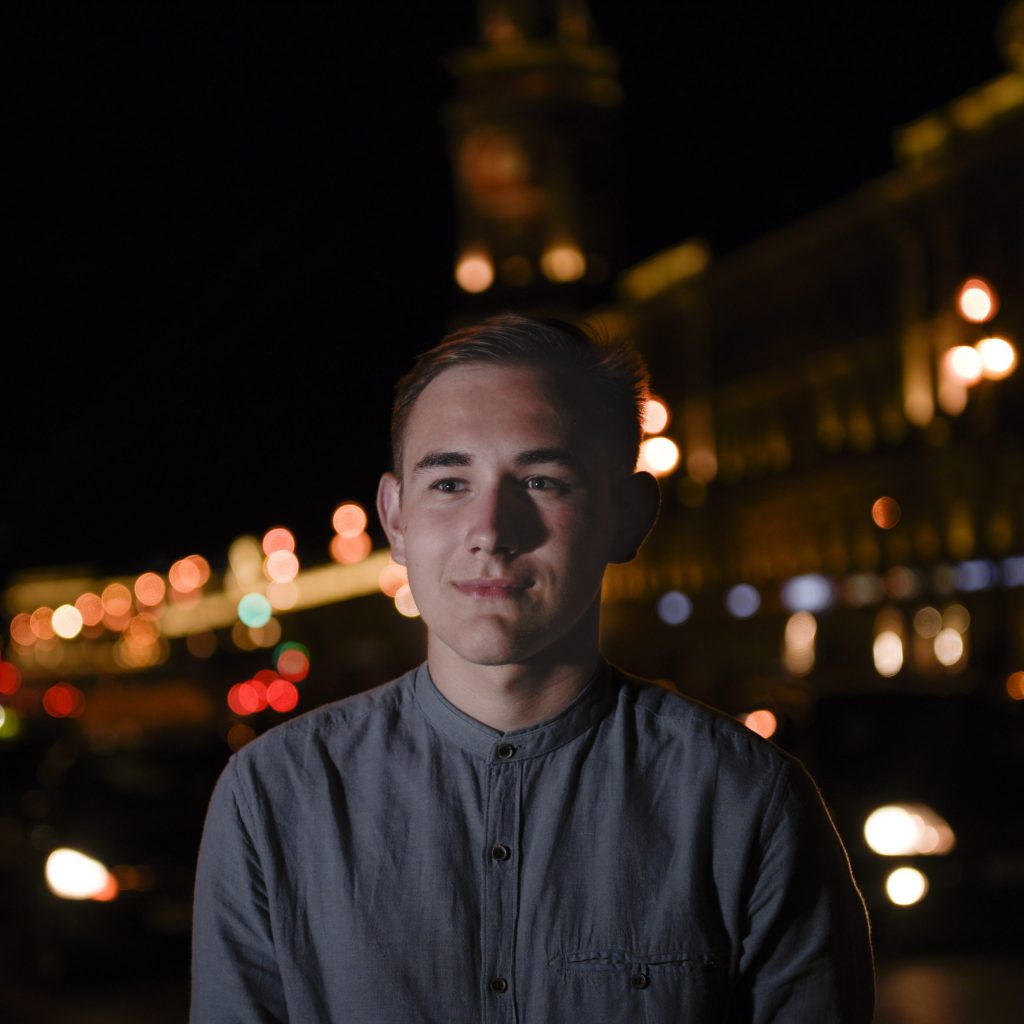
Dzima
Dzima, a volunteer for the Meeting National Young People’s Public Association, is involved in arranging gender or sexual orientation workshops.
– I associate myself with Ruth Bader Ginsburg, a lawyer and judge of the US Supreme Court. She advocated women’s rights and introduced many amendments to the constitution. As to me, I’m trying to debunk stereotypes in respect of the LGBTQ persons.
How did you feel, when you joined the course?
When I saw many new people, I got frightened. I felt scared to say I was a volunteer and from what kind of organisation. Never before had I openly disclosed it. And when the training course went ahead with using new and unknown words, like mentorship or reflection, my head felt like overboiling, plain and simple.
What word comes to your mind, when you think about the course?
«Leaving you to watch Dud on telly», – it was our local joke we used, when we needed to abandon the video call. And, of course, ‘informal education.’
2 difficulties and 2 achievements you have faced or reached during this time?
I used to know about the feminitives, but never used them before, but when I heard how many people pronounced them, I felt scared. At first, it was an uphill struggle to utter them, but now it’s easy!
Makathon was hard to master; communicating with so many people ground me down, but we all are cool and made it. On the plus side, now I can moderate workshops and have no idea how I could go without them.
What do you think has to be put to your credit?
Dzima, thanks for taking a challenge and going to attend the course. I’m proud of you, because you whole life has upended and now you don’t feel like stopping. Thanks for holding several workshops without any fears.
How do your pre-course and post-course egos compare?
The pre-course Dzima was a common young man with no knack for informal education.
The post-course Dzima is an active person, who knows where to target his capacity.
The talent you want to have?
Drawing and playing piano.
Young people are…?
People under 30 and they are our future.
Activism is…?
Expressing one’s thoughts and beliefs so as to bring about positive changes in the society.
The event in Belarus, which has taken you off your feet most of all?
Arrests of people made during a peaceful picketing. And, besides, how many people went out for solidarity picketing and who are ready to embrace changes.
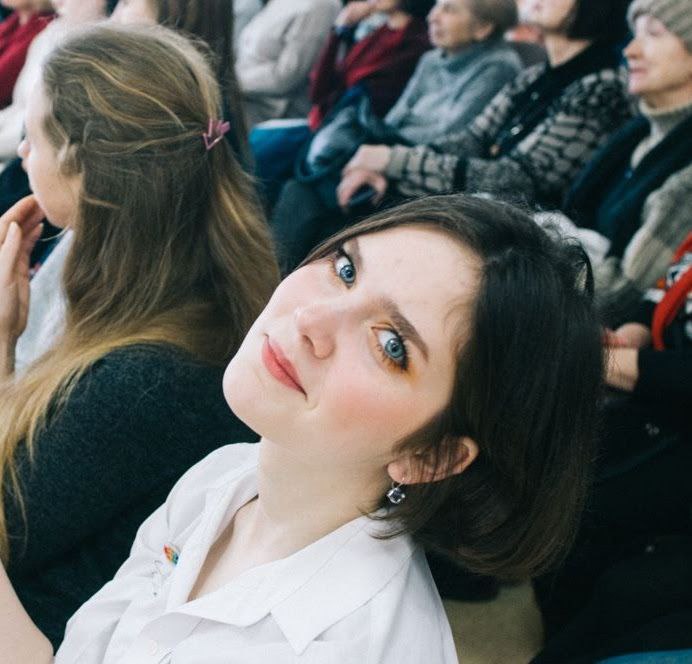
Sonia
Sonia runs the Viciebsk Closet Free initiative. Recently, they have initiated the ADEI public campaign, Against Discrimination in Educational Institutions.
– So far, I have had no hero or protagonist to associate myself with, but I hope I’ll find one within myself.
How did you feel, when you joined the course?
I was nervous and very much surprised, when I received a confirming letter, because almost a hundred persons applied! During the course I was absorbing any information provided. My strongest desire after the first training session was to go out and do something!
What word comes to your mind, when you think about the course?
«Leaving you to watch a new Dud sequel on telly»,
«A mad empress»,
«Take on me».
2 difficulties and 2 achievements you have faced or reached during this time?
It was challenging to conduct my first online sessions; I used to feel uncomfortable and was upset. Luckily, my female colleagues supported me throughout.
Activities with my female colleagues are something I pride myself on most of all. The online youth participation workshop, the Viciebsk gender carrot training session and the Maladiečna 21st century skill training. A cool experience and, at the same time, a huge challenge, but we have made it.
What do you think has to be put to your credit?
Little honey babe, I’m proud of you! Thanks for applying for the course, although you had doubts you’d be accepted. Now you rely more on your capacities and have found cool friends, both male and female, who inspire you. You are a broth of a girl now to become a finer fellow in the future!
How do your pre-course and post-course egos compare?
The pre-course Sonia was a seventeen-year-old baby who went straight on ahead without a clear understanding where.
The post-course Sonia knows what she does and what for. She is not afraid to make mistakes or to think out-of-the-box and relies on her own capacities.
What did you learn during this time?
I’ve established myself as a trainer and conducted three offline and two online training sessions. Approached mentoring initiatives and implementing one of my own! Besides, accepting and correcting my mistakes.
The talent you want to have?
I have always wanted to play violin, but can only produce sounds that hurt ears. I do hope I shall master the art in the future.
Young people are…?
Young people, it’s myself!
Activism is…?
About making the world a little bit better!
The event in Belarus, which has taken you off your feet most of all?
The coronavirus pandemic and all the president’s phrases about treating people and about human deaths. At that time I felt fear, desperation and anguish. I think, for me it was the moment, when public things turned out very personal.
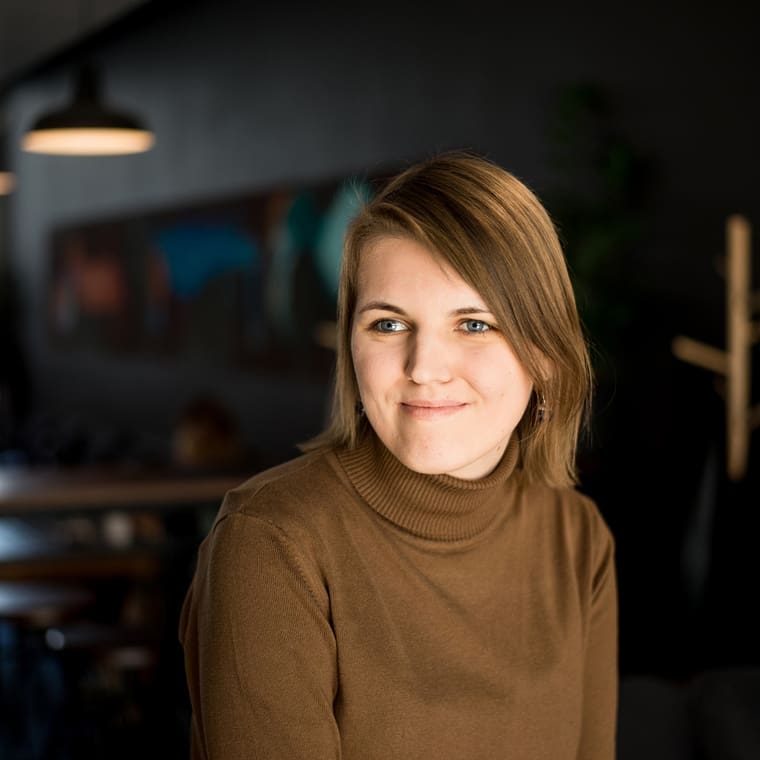
Diana
Diana works as a communication manager with the Research Organisation Centre for New Ideas. In her time off, she prepares useful material on NGOs for her colleagues. Besides, she records her Where to head for podcast about educational opportunities.
– I do not associate myself with any heroes or protagonists, since one of my principles sounds: ‘You shall not make for yourself an idol.’ I am inspired by the examples of the girls and women, who create their own projects or initiatives, display activism or are simply successful in what they are doing. For instance, by single-mindedness and professionalism of my friends: Alana Gebremariam, the Youth Block founder and an activist of the Belarusian Students’ Association, and Taćciana Ašurkievič, an Onliner journalist.
How did you feel, when you joined the course?
I wanted to get a first-hand experience of youth work and training. Earlier, I had provided open lectures and master classes, but had an inclination for more interactive events.
What word comes to your mind, when you think about the course?
Inspiration to reach new achievements.
2 difficulties and 2 achievements you have faced or reached during this time?
Difficulties: it’s hard till this very day to cope up with the online shift, because my mind receives the process as an undernourishment case.
Achievements: I’ve carried out in Mahilioŭ a text and oral communication workshop. All by myself, I’ve found a location in another city, partners and the other speaker, announced enrolment, held the event and found at least two friends with whom I maintain communication.
During the course an idea struck me to arrange an event for young people to share their activism and not-for-profit initiative involvement experiences. I failed to implement it within the course framework, but got it done at work, in the form of the Zoom platform Pre-party.
Besides, I acted as an expert and for the first time ever as an advisor at the Makaton, and advised the initiative people, how to promote themselves more efficiently. It wasn’t easy, but I liked it.
What do you think has to be put to your credit?
Diana, thank you for finding some time to hold the Mahilioŭ workshop and the Young Reformer School events, despite being overwhelmed with current work. During the events, I served both as a moderator and a trainer for the young.
How do your pre-course and post-course egos compare?
Prior to the course, I had my initiative and my vision of the future. However, concurrently with attending the course I abandoned my initiative and grasped that I felt like doing what my intuition prompted me to do. It is challenging mentally, but it is worthwhile doing what one really wants instead of pursuing fata morgana achievement. Sooner or later, I shall come into my own …
What did you learn during this time?
Planning training sessions from «a» to «z».
The talent you want to have?
Physical balance. I cannot ride bikes, kick scooters or skateboards.
Young people are…?
Boldness, audacity and a high capacity.
Activism is…?
Contributing to positive changes in the society and comprehending why and exactly for whom you are doing it.
The event in Belarus, which has taken you off your feet most of all?
The visa-free entrance for foreigners, because it was instrumental in helping me to find new foreign male and female friends, when I couldn’t go abroad often.
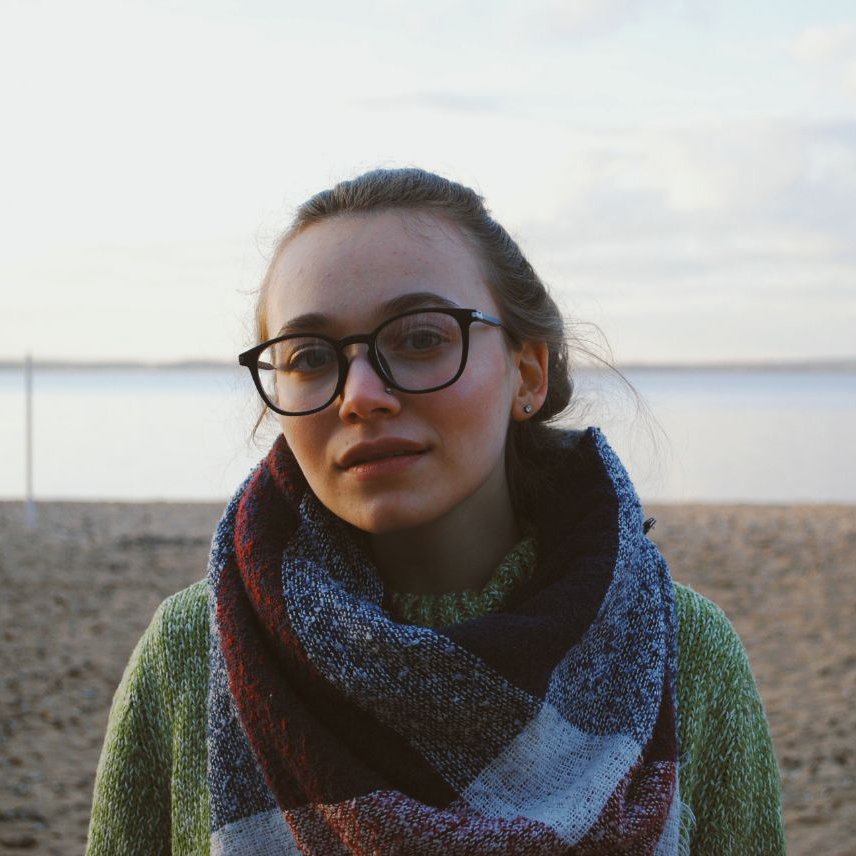
Darja
(Speaking in Belarusian)
At present, Darja runs the community vector at the Belarusian Students’ Association and administers the education and outreach programmes at the Belarusian Human Rights School.
– I associate myself with a ‘multi-armed and thousand-eyed woman,’ because now, as never before, I have to do a lot of all kinds of work, always to be in line of the developments around and to see different positions.
Besides, I strongly support solidarity in view of the recent occurrences.
How did you feel, when you joined the Youth Power course?
I felt somewhat strained because of missing the first seminar: I was drafted through an additional enrolment, which is why missed many local jokes and the magic moment of introductions.
What word comes to your mind, when you think about the course?
You are breaking my feeble heart, my fair lady.
2 difficulties and 2 achievements you have faced or reached during this time?
Top difficulties: integrating into an unknown team and embracing a new environment, holding a mentoring meeting in the pre-pandemic times (when the focus was for sure shifted away from your own initiatives), and learning online.
Top pleasures: understanding that a two-day non-stop Makaton activity and mentorship is real, getting to know closer the Office team and the wonderful course participants, and a new vision of creative approaches and of a new toolkit.
What do you think has to be put to your credit?
Darja, my darling, thank you for your audacity and your attempts to take part. And for your persistence to stay in after the first session. The products served were the flame, but, as it later turned out, the people around proved that I was back in my habitual comfortable frying pan again. Without them nearby, you would have never overcome such multiple barriers. Makaton seemed a trial, but now, to be completely sincere, you feel much better off to be a mentor and to promote young people’s initiatives, don’t you? This is due to the same old constellation of the stars ‘fruitful work’ + ‘good team’ + ‘best menties’ + ‘inspiration to make the world a better place.’
How do your pre-course and post-course egos compare?
Pre-Daša: «I know what to do».
Post-Daša: «Oh hell, it can be done in a more attractive, efficient and creative way!».
What did you learn during this time?
Engaging and collaborating with those who do not seem to need it. Besides, listening to people and restraining from imposing my advice upon them. I got to understand that everyone, even the best among the best of menties, can and may make mistakes; it is something their own experience proves.
The talent you want to have?
The Zen Buddhist self-mastering ability to see people being arrested without your heart beating savagely to fly away.
Young people for you are…?
The kind of sparks capable of being blown into a huge fire of ideas and actions capable of transforming the world, if inspired by a proper wind of support!
Activism for you is…?
An integral part of my soul, something without which I am not my usual self.
The event in Belarus, which has taken you off your feet most of all?
Celebrations of the 100th anniversary of the Belarusian People’s Republic near the Opera building.
The Youth Power Programme has trained female and male multipliers, i.e. those to work with the young people and to strengthen their positions and their societal engagement.
The Programme has been implemented by the Office for European Expertise and Communications in partnership with the Pact International NGO supported by the U.S. Agency for International Development (USAID).

